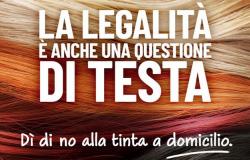
The European Union Environment Ministers met today, 17 June 2024, to reach a general orientation on the waste proposal, the environmental claims directive and the soil monitoring directive.
In particular, the Environment Council approved the compromise on the Commission’s proposal to revise the framework directive on waste. This result represents a significant step forward to improve food waste prevention and refine data collection, while ensuring legal certainty and flexibility in implementation for Member States. The compromise confirms the food waste reduction objectives for 2030 proposed by the European Commission which consist of a 10% reduction in the processing and production phases and a 30% reduction per capita in retail sales, restaurants, catering services and families. These targets will be compared with 2020 levels, the year in which food waste data was collected according to a harmonized method. However, Member States will be able to choose 2021, 2022 or 2023 as the reference year to set their reduction targets, given the possible non-representativeness of 2020 data due to the COVID-19 pandemic. It is important to underline that primary production is excluded from the objectives of reducing food waste, a fundamental aspect that Confagricoltura has strongly supported. Furthermore, the directive provides for the revision of the objectives by 31 December 2027, including the assessment of the feasibility of a target for the edible fraction of food waste. The European Commission will adopt delegated acts to establish a common methodology and minimum quality requirements for the uniform measurement of food waste, including edible fractions. Confagricoltura welcomes this decision, which reflects the expectations and requests of farmers.
At the same time the Council has General approach on the Green Claims Directive adopted. The legislation proposed by the European Commission in March 2023 establishes detailed rules on the attestation and communication by companies of voluntary and explicit environmental declarations. The aim is to ensure that consumers receive reliable, comparable and verifiable information about products. To this end, the directive provides for new rules requiring companies to establish procedures to ensure ex ante verification of the attestation by an independent and accredited verifier. The claims being verified concern environmental impacts, aspects or performance of a product or the company itself that are not currently regulated by other EU rules. From the beginning, Confagricoltura had highlighted the opportunity to exclude from the field of application of the directive agricultural businesses that comply with the requirements of ecological regimes, good agricultural and environmental conditions and quality regimes. These requests were accepted in the Council text which provides for a simplified verification procedure for declarations relating to the measures envisaged by the green architecture of the Common Agricultural Policy.
Finally, the third orientation that the EU Environment Ministers have reached regarding the Soil Monitoring Directive, which aims to support actions aimed at achieving healthy soils by 2050. The European Commission’s proposal, published on 5 July, establishes a framework for monitoring and evaluating the state of health of soils, introducing a series of criteria for sustainable management of EU soils. From the beginning, Confagricoltura has shared the objective of the proposal to fill the knowledge on the state of health of EU soils through a uniform and simplified monitoring framework, while highlighting some critical issues of the proposal and the mandate of the European Parliament. Where the formulations of the European Commission and the European Parliament with respect to soil assessment are excessively rigid, envisaging binding and stringent restoration scenarios for Member States, the Council text shares the ambition of the proposal on soil assessment and maintains the concept of soil descriptors (physical, chemical and biological parameters), but guarantees the desired and necessary flexibility to better adapt to local circumstances, respecting the diversity of European soils.
The general approach reached by the Council for each of the dossiers will allow the rotating Presidency to start interinstitutional negotiations to reach a final agreement.





